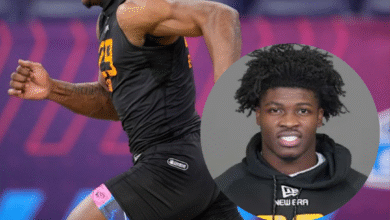They Don’t Ban Mahomes for Passing—Why Ban Hurts for Pushing
OPINION: This article may contain commentary which reflects the author's opinion.
After winning Super Bowl LIX, the Philadelphia Eagles find themselves defending more than just their title—they’re defending the very way they play the game. At the center of the storm: the now-infamous “tush push,” a quarterback sneak turned unstoppable weapon, led by Jalen Hurts and backed by stars like Saquon Barkley and Dallas Goedert.
The strategy, executed with flawless timing and raw physical dominance, has sparked outrage from rival teams—particularly the Green Bay Packers and Buffalo Bills—who claim it’s unfair and unsafe. But no evidence supports injury concerns, and the outrage feels less about danger and more about defeat.
That’s exactly how Barkley sees it. In a bold statement at the Met Gala, he fired back: “If you don’t like it, get better at stopping it.” His point? No one’s trying to ban Patrick Mahomes’ rocket arm. So why is Hurts’ lower-body strength suddenly controversial?
The comparison stings because it’s true. Mahomes can throw 40-yard darts across his body and is rightfully praised. Hurts can squat 600 pounds and push through a pile, and suddenly the league wants a rule change. The inconsistency is glaring—and Eagles fans aren’t letting it slide.
Barkley, who rushed for over 2,000 yards last season, emphasized that the tush push isn’t cheating—it’s excellence. Other teams have tried and failed to replicate it. The Eagles’ execution comes from offensive line mastery, Hurts’ leg strength, and perfect cohesion—not trickery.
Head coach Nick Sirianni added fuel to the fire, saying, “We don’t penalize greatness. We scheme against it.” He likened banning tush push to outlawing the fade route or Mahomes’ no-look passes. It’s part of football’s chess match—and the Eagles are simply playing it better right now.
With 27 touchdowns and 92 first downs over three seasons, the tush push is more than a tactic—it’s a symbol of Philly’s identity. And that identity isn’t going anywhere quietly. The proposal to ban it was postponed at the March NFL meeting, but it will return to the table in May.
Until then, Barkley’s words hang in the air: “You can’t stop us, so you want to change the rules? That’s not football. That’s fear.”
And in a city that thrives on grit, fear isn’t welcome.



